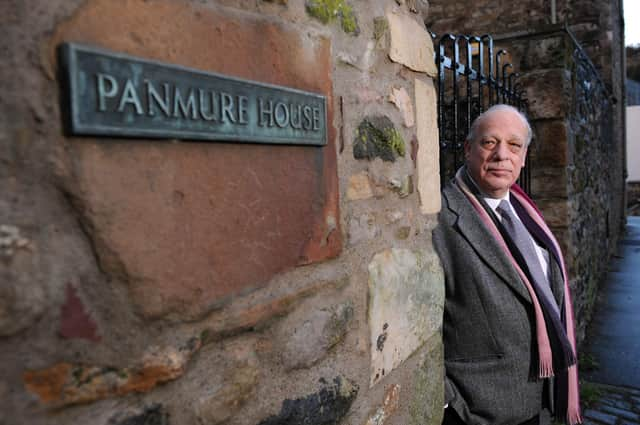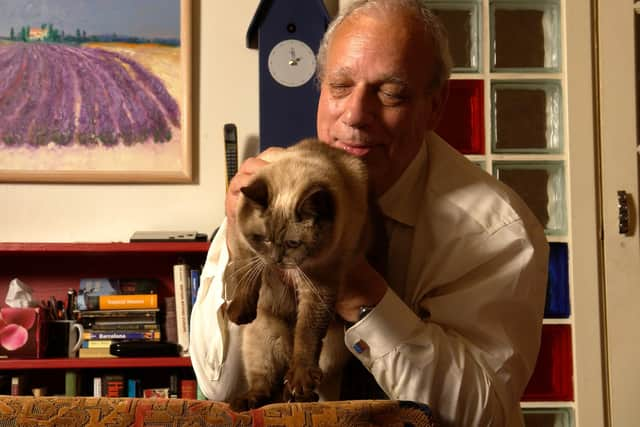Papers and roses: Alastair Jamieson pays tribute to his father Bill


Among the emails on his iPad was one from a church administrator seeking advice about investments — and roses.
Like pruning and black spot, successful financial management requires an assiduousness that can frighten the novice, but Bill wrote about both with equal elegance and wit and was as proud of the clarity and insight he brought to economics as he was of his much-admired garden.
Advertisement
Hide AdAdvertisement
Hide AdHe wanted, and planned, to write this final column, but the cancer for which he was being treated became too much to overcome. A news hack to his inky fingertips, I think it’s the only deadline he ever missed.


Bill had already achieved a Fleet Street career before joining The Scotsman, breaking stories including the 1995 collapse of Barings Bank, but his time at this newspaper was by far his happiest.
For one, it marked a return to Scotland. His birthplace, the Ayrshire town of Newmilns, was where he became entranced as a schoolboy in the 1950s by the production of the local newspaper.
In 2000, during one of then editor-in-chief Andrew Neil’s frequent shake-ups of The Scotsman, Bill returned as Executive Editor — a grand title that spoke of lofty editorials and boardroom meetings, but more often saw him signing off ‘proofs’ of the business section every night.
At a time in life when many take advantage of ‘executive privilege’, he worked harder than ever, overseeing both the business and opinion sections as well as writing for Scotland on Sunday.
He was a fixture on the rear-facing balcony at Holyrood Road — usually with a cigarette, a cup of tea and a furrowed brow — deciding how to interpret the latest proprietorial edict or bring clarity and authority to the day’s financial news.
His political viewpoint was rarely in fashion, but his sagacity was beyond doubt, and so it proved when the credit crunch hit Scotland’s banks and finance firms.
He broke the story of the Lloyds-HBoS merger and in 2009 he won both Business Journalist of the Year and Journalist of the Year at the Scottish Press Awards and collected Campaign of the Year Award for The Scotsman.
Advertisement
Hide AdAdvertisement
Hide AdThe achievements that gave him his greatest satisfaction were personal. He wrote books on the mining industry and Scotland’s economy, and made regular appearances on BBC Scotland, often opposite his Herald counterpart Alf Young.
But nothing gave his greater pleasure than building a new home in Lochearnhead, on the site of a ruined cottage.
From the back porch of Inverogle — he fancied it as a verandah, like in Out of Africa — he would watch the wildlife of Loch Earn, smoke, read the papers and write his columns. It was his corner of Scotland, and it brought him great satisfaction; indeed, he was tending the garden by the A84 until very recently.
While still contributing to The Scotsman, he developed cancer that led to the removal of a kidney and was in recovery, but during a recent spell at his wife Elaine’s family home in Cornwall he became too unwell to return to Scotland.
Delays related to coronavirus saw his cancer return, aggressively, and he died in the Royal Cornwall Hospital at Treliske, Truro in the early hours of Saturday.
In an industry where kindness is scarce, Bill is best remembered for his thoughtfulness and encouragement, especially to younger colleagues. In particular, he took time to offer advice and to recognise and praise a job well done.
There are many who benefited from this wisdom of sub-editing expertise honed in the ‘hot metal’ era when writing headlines was both a physical and cognitive skill.
He was just as encouraging to me, and never talked me out of following him into the precarious world of journalism, even when his return to The Scotsman came months after I began my first full-time job there as a junior reporter. He made sure there was to be no favouritism, but also no embarrassment.
Advertisement
Hide AdAdvertisement
Hide AdHe is also remembered for bellowing, staccato laugh — followed most usually by an explosive cough — his trademark red socks, and the thunderingly loud typing borne of decades battering the heavy keys of a typewriter.
The typing has fallen silent, but his work office still smells of tobacco and deadlines and he is already missed very, very much.
As for the roses? Prune well, avoid black spot, and you’ll enjoy them year after year.
Comments
Want to join the conversation? Please or to comment on this article.